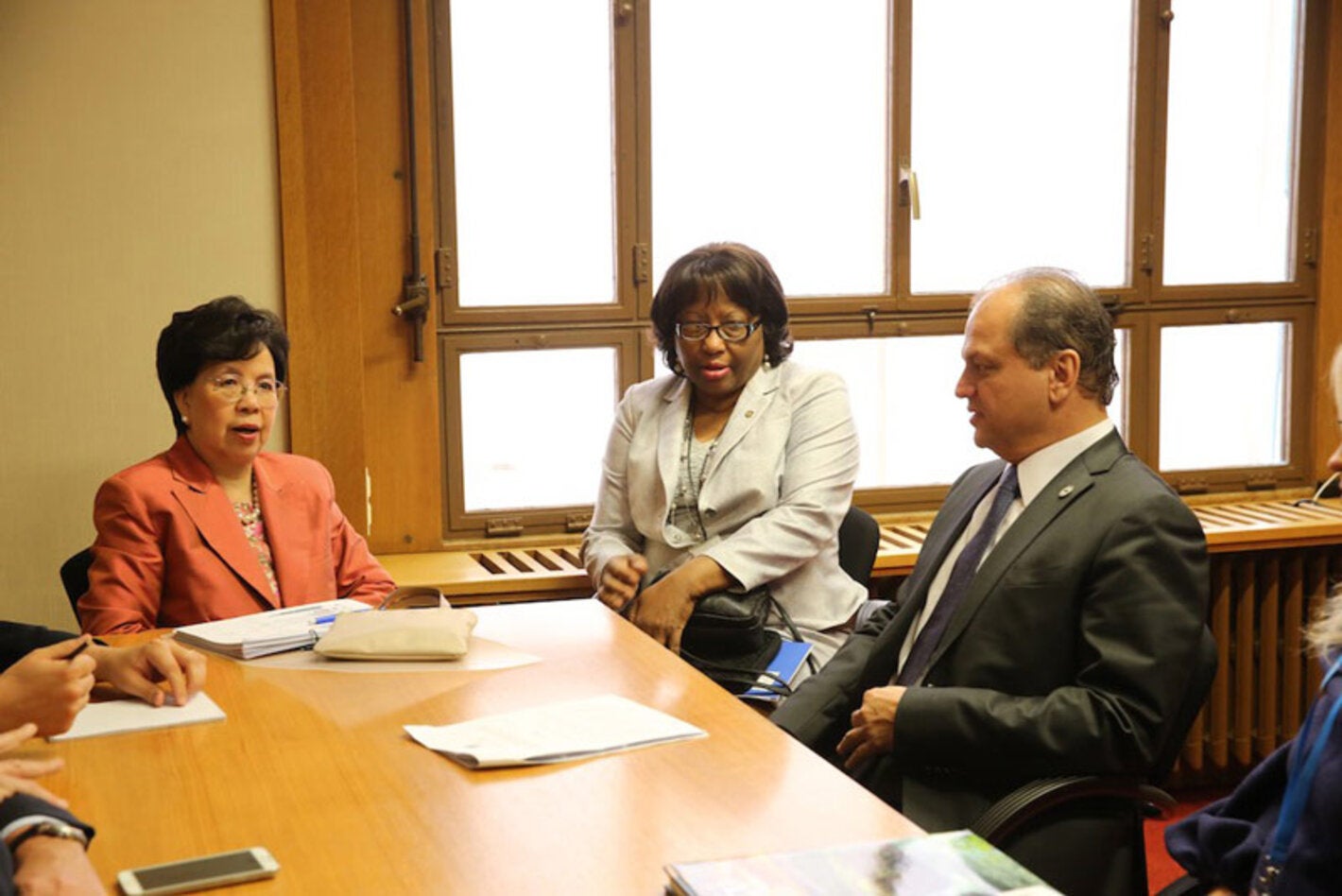
Geneva, 23 May 2016 (PAHO/WHO)— In his address to the 69th World Health Assembly, the Minister of Health of Brazil, Ricardo Barros, announced that potential developmental consequences in children whose mothers have been infected by the Zika virus will be investigated.
"We offer comprehensive care to children born with microcephaly and will follow up those children whose mothers exhibited signs of Zika infection during pregnancy, including those who do not have microcephaly, in order to detect other neurological, visual, or hearing complications", noted the minister.
The minister also showed a chart that highlighted the low rates of transmission of dengue and other Aedes aegypti-borne diseases in Brazil during August (in the South American winter), the month in which the Olympic and Paralympic Games will take place in Rio de Janeiro.
"Furthermore, we have adopted specific vector control measures, which allows me to reaffirm that the Olympic Games will take place safely for the whole Olympic family and all visitors. We hope to welcome them enthusiastically to Rio de Janeiro", the minister stated.
Barros met today with the Director of the Pan American Health Organization (PAHO), Carissa F. Etienne, and the Director-General of the World Health Organization, Margaret Chan. They addressed both topics during these meetings.
Regarding monitoring of children born to mothers with symptoms of Zika infection, the next step will be to define which institutions will be in charge of this follow-up process to identify whether Zika virus can be associated with other developmental repercussions until age 5. Within this context, Brazil could receive support from PAHO for the implementation of such research.
"We acknowledge the role played by PAHO and WHO in joint activities with Brazil in the response to the Zika virus, a public health emergency that is already present in 60 countries and territories and has exposed 1.3 billion people, 15% of whom are Brazilians, to this disease. Over the next few days, we will have the opportunity to discuss and continue to share information on the response to this emergency", said Barros.
The minister also explained several actions that have been implemented in Brazil, such as enhancing surveillance and encouraging the development of new technologies for vector control, and stressed that research and development of new vaccines against the Zika virus is another cornerstone.
Earlier, at the technical event "Dengue: reframing the dialogue", surveillance expert Alexander Fonseca reported on the battle waged by Brazil against the mosquito vector of Zika for decades. He stressed that water and sanitation remain a challenge in some areas, as does waste management. However, he noted, new interventions are being carried out to improve vector control.



